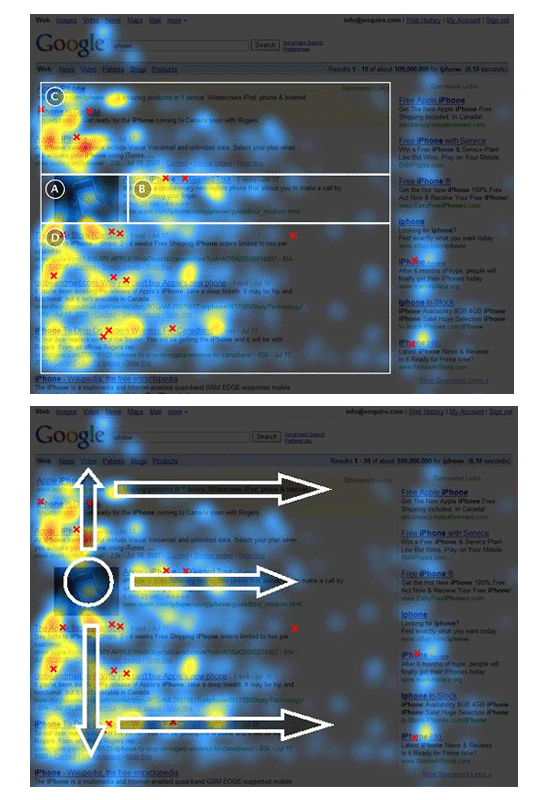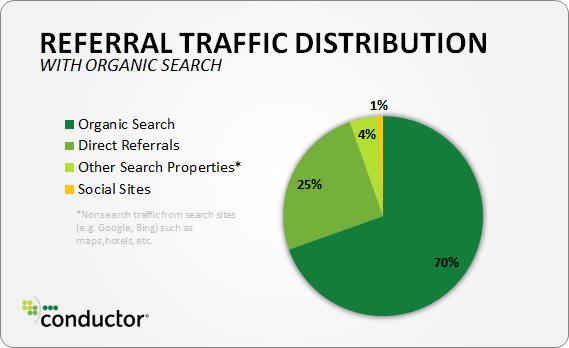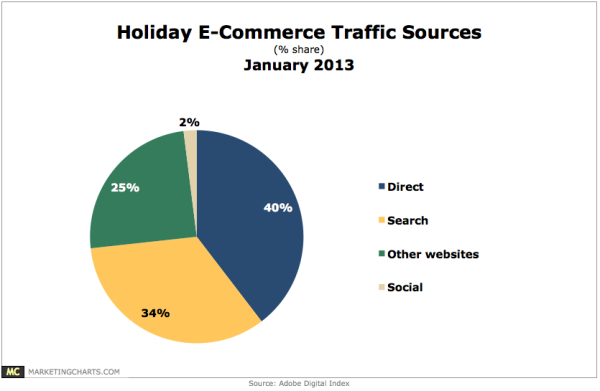Any in-house SEO professional (or consultant) who has been in the industry for even a short time has likely had to dispel misconceptions and inaccuracies about SEO to a senior manager, budget holder or client. These misconceptions can often be so embedded that they result in an underfunded, under-resourced and under “mind-shared” SEO program.
To address many of these misconceptions — and also have a little fun with the SEO-uninformed Boss — we put together a sample interaction between “Ann,” the Director of Online Marketing at medium-sized clothing retailer ACME Co., and her VP of Marketing, the uninformed, budget-holding, SEO-deficient boss. This fictional conversation takes place when they get together to review Ann’s marketing plan for the year.
Whenever possible, we supported Ann’s arguments with empirical or knowledge-based responses so as to arm you should you ever encounter these objections yourself. Since we know it can be frustrating for knowledgeable SEO professionals to have to repeatedly counter SEO-ignorant management objections, we thought it would be fun to add in italics what Ann is really thinking and perhaps wished she could say.
 Uninformed Boss:
Uninformed Boss:
“You Don’t Get Customers/Revenue from Search.”
![]()
Ann Thinks: Please, can you start looking at the actual data and facts before forming an opinion about one of your key marketing channels, rather than believing every headline you read?
 Ann Says: Actually, that’s inaccurate. Here’s data from a Shareaholic study of 270 million site visits that shows natural search accounts for nearly half of all site visits, which is 5x more than all social visits combined.
Ann Says: Actually, that’s inaccurate. Here’s data from a Shareaholic study of 270 million site visits that shows natural search accounts for nearly half of all site visits, which is 5x more than all social visits combined.
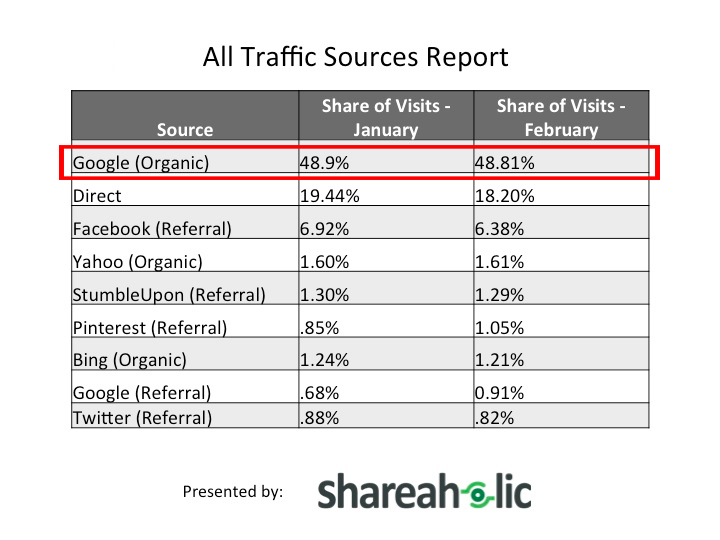
Natural search visitors convert better, too. Hubspot’s data shows they have the best lead-to-customer close percentage of all channels:
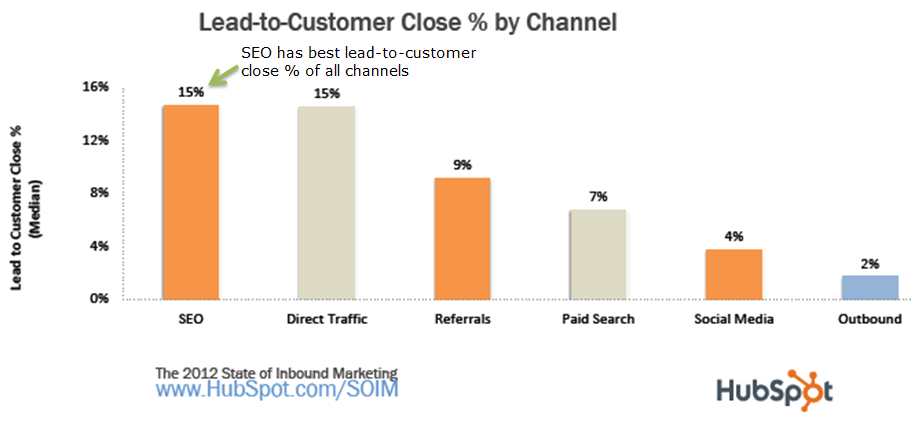
 Uninformed Boss:
Uninformed Boss:
“We’re Not A Big Brand, So We Have No Shot In The Search Rankings.”
![]() Ann Thinks: If I see a dog, does that mean I am familiar with all the characteristics of a cat just because they both have four legs? Just because your past experience has been with marketing channels such as TV, where a massive marketing budget is the cost of admission, doesn’t mean it’s true for every other marketing channel.
Ann Thinks: If I see a dog, does that mean I am familiar with all the characteristics of a cat just because they both have four legs? Just because your past experience has been with marketing channels such as TV, where a massive marketing budget is the cost of admission, doesn’t mean it’s true for every other marketing channel.
 Ann Says: It is a myth, albeit a persistent one, that you must be a massive company listed on every stock exchange with billions in annual revenue to make real headway in the search listings. The truth is, although brand recognition helps when it comes to building a robust link graph, search is the great equalizer with an open playing field to those organizations that choose to focus on it.
Ann Says: It is a myth, albeit a persistent one, that you must be a massive company listed on every stock exchange with billions in annual revenue to make real headway in the search listings. The truth is, although brand recognition helps when it comes to building a robust link graph, search is the great equalizer with an open playing field to those organizations that choose to focus on it.
Take a look at this example SERP for a high volume keyword (“web hosting”). It shows how small- and medium-sized companies can do quite well in the SERPs. There are many such examples across industries.
 Uninformed Boss:
Uninformed Boss:
“Why Don’t We Do Google Ads Instead? We Can Get Traffic Immediately Without All this SEO Business.”
![]()
Ann Thinks: Just because a 99-cent hamburger gives you immediate gratification doesn’t mean it’s in your long-term best interest.
 Ann Says: Paid search ads will give you a more immediate return in some cases, but that is one of many factors to consider when considering investment in Paid vs. Natural search.
Ann Says: Paid search ads will give you a more immediate return in some cases, but that is one of many factors to consider when considering investment in Paid vs. Natural search.
Consider the following factors:
- Clicks take place in natural search: comScore data show that up to 92% of clicks take place in organic vs. paid search. Studies show a large part of this is because searchers are focused predominantly on the natural search results. This means a brand’s focusing on paid search means they are not appearing in the real estate where a majority of searcher attention is given.
- It Costs $$$ to Feed the Paid Search Machine: Paid search (as the name implies) is not free. It must be constantly fed money to continue producing results. (There’s a reason why Google generated nearly $50 Billion dollars in revenue last year.) Stop feeding the Paid Search machine, and it stops driving traffic. Contrast that with natural search — while it is not free and does require an often significant upfront investment, it is an ongoing source of earned traffic (with some regular maintenance).
- More than Half of Search Queries Have No Paid Ads: Given that more than half of all search queries return no paid ads at all, the only way to reach the more than 1.5 Billion queries per day that that represents is by appearing within natural search results.
 Uninformed Boss:
Uninformed Boss:
“We Have a Good Brand and Rank Well for It, So We Don’t Need SEO.”
![]() Ann Thinks: That’s like saying, “The people in my store are already buying some things so that’s enough business for me.”
Ann Thinks: That’s like saying, “The people in my store are already buying some things so that’s enough business for me.”
 Ann Says: It’s pretty normal to be ranking well for your own brand, and searchers who are specifically searching for your brand are likely to already have made a decision to purchase from you. It is the searchers who are searching for terms relevant to your industry, who have not yet made a purchase decision, that you want to capture through SEO. Even a rudimentary scan shows that our brand is not highly visible for the kinds of terms that would generate significant traffic and revenue.
Ann Says: It’s pretty normal to be ranking well for your own brand, and searchers who are specifically searching for your brand are likely to already have made a decision to purchase from you. It is the searchers who are searching for terms relevant to your industry, who have not yet made a purchase decision, that you want to capture through SEO. Even a rudimentary scan shows that our brand is not highly visible for the kinds of terms that would generate significant traffic and revenue.
 Uninformed Boss:
Uninformed Boss:
“SEO is Dead! Everyone’s Investing in Social; Isn’t That Where We Should Be Putting Our Money??”
![]() Ann Thinks: Did your mother ask you, “If everyone else was jumping off a bridge, does that mean you should to do it, too?” a lot?
Ann Thinks: Did your mother ask you, “If everyone else was jumping off a bridge, does that mean you should to do it, too?” a lot?
 Ann Says: There’s no question that Social has a place in the marketer’s toolbox, and with the recent emphasis on content in the industry, it is a critical distribution channel for the marketer’s content. But if you look past the hype and step out of the echo chamber, you’ll see that in most cases, search still represents a far greater opportunity than social.
Ann Says: There’s no question that Social has a place in the marketer’s toolbox, and with the recent emphasis on content in the industry, it is a critical distribution channel for the marketer’s content. But if you look past the hype and step out of the echo chamber, you’ll see that in most cases, search still represents a far greater opportunity than social.
First, based on Conductor’s analysis of more than 31 million referral visits, you can see that organic search accounts for 7 out of 10 visits, whereas social accounts for 1%.
Looking at it from another angle, you can see Adobe’s analysis of billions of visits to over 500 e-commerce websites: 34% came from search, while 2% came from social.
Conclusion: Arm Yourself To Counter The Misconceptions Of The SEO-Deficient Boss
Search Engine Optimization is an industry rife with misconceptions, both about the practice itself and about its utility relative to alternative marketing channels. These persistent misconceptions, coupled with disproportionate media coverage of other, sexier channels, leave the ignorant boss particularly susceptible to inaccuracies.
Arming yourself with intelligent, metric-backed responses will give you the best chance of countering your boss’ misconceptions and ensure you get the buy-in and support you need to succeed.

